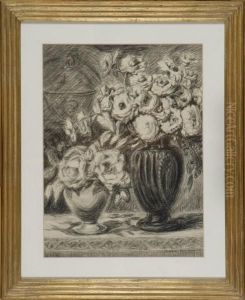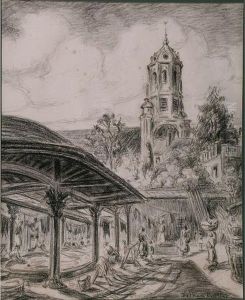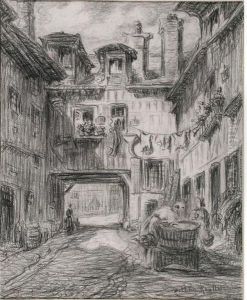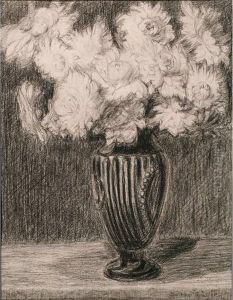Marie Therese Dethan Roullet Paintings
Marie Therese Dethan-Roullet was a French artist born in 1848 in Avignon, France, and died in 1926. Her career spanned across the late 19th and early 20th centuries, a period marked by significant transformations in the art world. Dethan-Roullet was known for her contributions to painting, particularly in the realms of portraiture and genre scenes. Her work, characterized by its detailed realism and sensitivity to light, reflects the broader movements of Realism and early Impressionism, though she maintained a distinct style that resisted easy categorization.
Dethan-Roullet's education in art began in her hometown but soon extended to Paris, where she studied under renowned artists of her time. Despite the challenges faced by women in the art profession during this era, she managed to establish herself as a respected artist, frequently exhibiting her works at the prestigious Salon de Paris. Her participation in these exhibitions not only garnered her critical acclaim but also allowed her to contribute to the evolving narrative of French art.
Throughout her career, Dethan-Roullet exhibited a keen interest in capturing the nuances of daily life, often focusing on the interiors of homes and the private moments of her subjects. This thematic concern, combined with her meticulous attention to detail and color, set her work apart from her contemporaries. Moreover, her portraits, which often featured women and children, were praised for their emotional depth and realism, offering insights into the lives and statuses of her subjects during a time of rapid social change.
Despite her success, Marie Therese Dethan-Roullet's work fell into relative obscurity after her death. Recent years, however, have seen a renewed interest in her contributions to art, with scholars and collectors alike recognizing her unique position within the French art canon. Dethan-Roullet's legacy is now appreciated not just for her mastery of painting but also for her role in paving the way for future generations of women artists.





